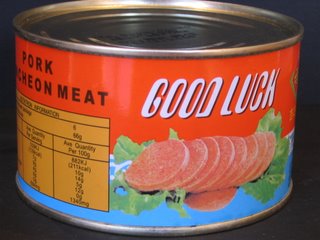
OPEN ON MCU OF A GROUP OF ADVERTISING STRATEGY PLANNERS AND CREATIVES FROM SEVERAL DIFFERENT MELBOURNE AGENCIES. THEY ARE OBVIOUSLY TALENTED AND CAPABLE OF DOING GREAT WORK. CARRYING PORTFOLIOS AND STORYBOARDS, THEY ARE TRYING TO ENTER THE OFFICES OF MELBOURNE TRAIN OPERATOR CONNEX.
MUSIC FADES UP: OBSCURE TRANSYLVANIAN FUNERAL LAMENT.
CAMERA PULLS BACK TO REVEAL THAT THE TALENTED GROUP IS BEING RESTRAINED BY ANOTHER GROUP. SELF-INDULGENT CREATIVES FROM CUMMINS AND PARTNERS, THIS SECOND GROUP IS DESPERATELY GRABBING AT THE ANKLES OF THE FIRST.
ORDINARY VICTORIAN COMMUTERS LOOK ON, TOTALLY PERPLEXED.
Connex launched its Don't hold others back ad campaign on 13 August. According to the Connex press release, "the centrepiece of the campaign are (sic) TV ads that can only be described as intriguing".
Only as intriguing?!! You're kidding, right? From my first viewing of the campaign, I'm afraid numerous other adjectives came to mind!
This is a campaign designed to tell commuters that it's their fault Connex trains don't run on time more often. If you decide this is the right thing to be telling commuters (and I'm not at all certain that it is), it sets up a communications challenge that calls for brutal honesty and self-reflection on the part of the advertiser. You have to be prepared to disarm commuters' natural counter-arguments first - by acknowledging your own shortcomings - before you can begin to hope for a fair hearing. And your message needs to be delivered with a very high degree of empathy and, probably, ironic humour.
Cummins & Partners' creative strategy fails on both counts. The choice of black & white cinematography, the funereal music and the images themselves evoke Stalinist Russia - they are cold and there is not a jot of empathy. Then the message "tag" is delivered not by a human being, or even a human voice, but by a sign on the end of the platform - a piece of totalitarian bureaucracy worthy of Orwell's "thought police". There's no light at the end of the tunnel: the depiction of the problem is dark and heavy-handed, but the solution is just a sign telling us how we should think and behave.
Let's face it, we're not talking here about HIV/AIDS in the 1980s. A campaign to encourage commuters to contribute to the shared goal of helping the trains run on time doesn't exactly call for the Grim Reaper.




